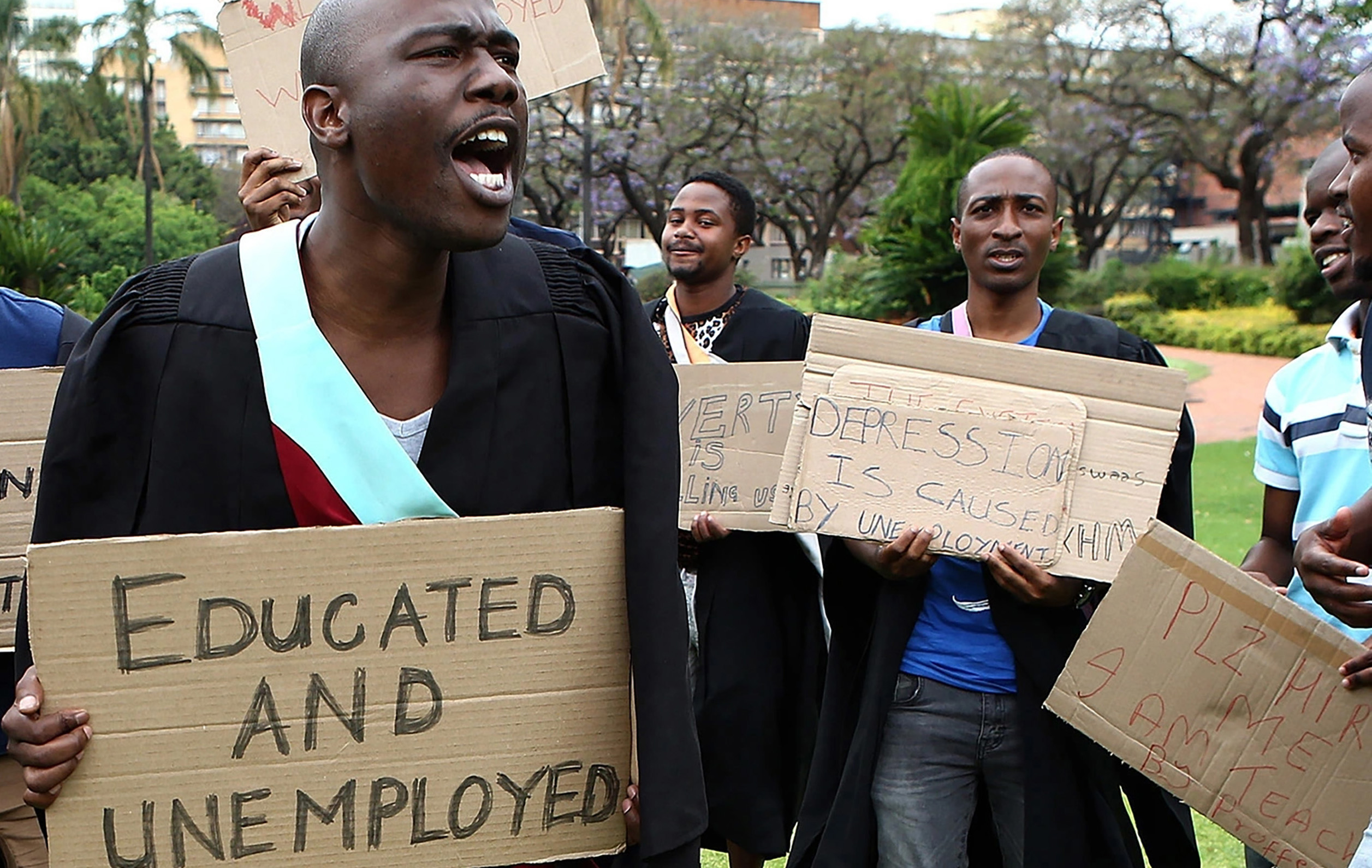Is it time to take a new approach to remedy South Africa’s high unemployment rate?
Probably so, considering the country has consistently registered one of the highest unemployment rates globally. And the unemployment rate continues to head in the wrong direction.
By now, the unemployment crisis is well audited and defined. Statistics tell us that 8.3 million people were officially unemployed between April and June 2024, but the number swells when including people who have given up on looking for a job. The crisis mostly affects those between the ages of 15 and 34.
Beyond statistics, young people have detailed their struggles with finding an entry point into the labour market. The joblessness crisis is so daunting that some young people may never experience the privilege of earning an income.
The unemployment crisis is complex and its causes are layered.
On the one hand, South Africa’s education system is largely poor, with comprehension skills (reading for meaning) and a grasp of numeracy being woeful. The system does not create a pathway to set up young people for future employment or success. On the other hand, South Africa is still grappling with spatial inequality, a legacy of apartheid, with many people living in areas that are far from economic and employment opportunities. If they do have job opportunities, they spend an inordinate amount of time and money travelling to such opportunities.
The last cause is crucial. South Africa’s economy is broken and not growing at a fast enough rate to create job opportunities, mainly for young people who fall within the low- and semiskilled categories. Industries that were drivers of employment and productivity – such as agriculture and mining – have been shrinking and unable to employ more people. Other industries – including financial services, manufacturing, retail and consumer goods – face similar challenges.
It is against this backdrop that the unemployment crisis has been difficult to tackle. Traditional approaches to addressing unemployment have not worked, even those supported by government policy interventions.
New approach to the unemployment question
It is essential to rethink approaches to the unemployment challenge and forge ahead with innovative and multifaceted approaches. As a start, decision-makers in government and business can look beyond sectors that traditionally provided jobs.
In South Africa, new sectors are emerging that could be a source of employment for young people. One of the emerging sectors is renewable energy, the green economy. South Africa’s electricity crisis, which has persisted for 16 years, has given rise to the establishment of the renewable energy sector. Companies that provide rooftop solar panel installations and other renewable energy solutions are springing up. Companies are spending billions to install backup electricity solutions so that their operations are not disrupted by power outages.
According to the National Energy Regulator of South Africa there were investments in solar power generation facilities worth R7.8-billion during the last three months of 2023. Billions of rands more are expected to be poured into the sector, and ultimately the economy. Yet, job opportunities in this space have not been targeted. Closer collaboration between the government and private sector needs to happen in the green/renewable energy economy to equip young people with the hard and soft skills that can help them to find work.
Another exciting and nascent sector that could provide jobs is artificial intelligence (AI).
To extract benefits from AI developments, the education system must be reconfigured towards equipping students with AI skills and expertise. AI concepts such as coding, machine learning, robotics and language processing could be integrated in curriculums – at all education levels. Students will be better prepared to enter the labour market, driven by AI, if they master these skills.
Focusing on emerging sectors might not completely eradicate the unemployment crisis. However, it could make a positive dent in the shocking unemployment rate.
Last, the private sector and companies should embrace the spirit of solving the unemployment crisis. Some companies only support job creation initiatives if there is an incentive such as tax rebates or an improvement to their Broad-based Black Economic Empowerment profiles. Job creation must not be viewed as a box-ticking exercise, but a spirited initiative to transform, upskill and empower lives. DM





